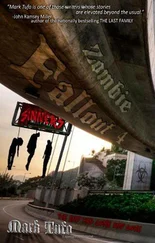“So you did object?”
“Eventually. I said I wouldn’t do it, and even went so far as to say it wasn’t their fight, either. They looked at me like I was worse than Henry, because at least Henry wasn’t a friend. I was a friend. So they tell me, go home then, if that’s how it is with me. Leave, you pussy, go home. But I couldn’t leave. They were my friends. And I was scared for Henry, too, and I figured it would be better for him that I stay in case. . I don’t know what. If it got out of hand, there’d be somebody to step in and help him. So what do you think I ended up doing? I ended up watching while they held Henry down and took these garden hoses — we’d planned all this out, you know. We had wonderful imaginations. We had stolen some garden hoses from the neighborhood, and my friends wrapped Henry up in them real tight, using them like rope. And when his hands and legs were bound with garden hose — trust me, he couldn’t move. Then they stuffed his mouth with somebody’s shirt so nobody could hear him cry. He was squirming around on the lawn of his backyard, his eyes real big, you know, and everybody was laughing. They stood him up, and then they started kicking him. Kick, and he’d tip over. They’d stand him up again and — kick. He’d fall, but without his arms to catch him. They did that over and over again. Lift him up, kick him, watch him fall down. Lift him up, kick him over. Every time he hit with a thud. He was crying like hell. And I just watched. I couldn’t stop them, but I couldn’t leave, either, in case they wanted to do something like toss rocks on his head, which they debated for a while. But they didn’t do that. Eventually they left him for his parents to find in the backyard — we left him, I mean. I ran away with everybody else. And when the police came to my door and showed my parents the Polaroids of Henry’s bruises, there was no way I could say, Oh, but I wasn’t really a part of that, I was just watching, or, I was really there just to protect Henry. Because that was as much of a lie as it was the truth, and for my participation I was sent to juvenile court, and I spent my last year in high school at one miserable fucking place.”
“You never told me this,” she said.
“I never tell anybody,” he said. “And not because I’m ashamed. I am ashamed, trust me. But that’s not why I never tell it. It’s over, it’s done, it’s history. I spent a year in hell, and then I went to college. I never joined a fraternity. I didn’t want a thing to do with fraternities. But I’ll tell you what else I never did. I never joined that loose association of counterfraternities, either. That was every bit as much of a club. I never bad-mouthed the frat boys because I knew guys in fraternities and I liked those guys, individually, some of them I liked very well, and if I was ever tempted to bad-mouth them, I could feel it coming over me again. Joining the club, losing control. Losing my convictions. That’s what I’m guilty of, Genevieve. Believing I’m better than the group. No better than anyone individually. Worse, because I stood by and watched Henry get wrapped up in garden hose and kicked over. There is no word for me. Someone better, smarter, more humane than any group. The opposite of an elitist, in a way. But that’s not to say,” he added, “that I’m not good and fucked up. And full of shame.”
GOOD THING WE NEVER invited Joe Pope to join the agency softball team. Didn’t like groups — well, what did he think he was doing working at an advertising agency? We had news for him. He was one of us whether he liked it or not. He came in at the same time every morning, he was expected at the same meetings, he had the same deadlines as the rest of us. And what an odd profession for him, advertising, where the whole point was to seduce a better portion of the people into buying your product, wearing your brand, driving your car, joining your group. Talk about a guy who just didn’t get it.
We took it personally, his reluctance to speak on our behalf. That old joke by Groucho Marx had been inverted: he’d never want to belong to a club that would have us as members. Well, if that wasn’t arrogance, if that wasn’t elitism, we didn’t know what was. And what did that attitude leave him with? Probably a very boring existence. He could attend civilized concert recitals though never himself join a quartet. He was allowed to read novels so long as he didn’t participate in any book club. He could walk his dog but his dog was forbidden from entering a dog park where he might be forced to commingle with other pet owners. He didn’t engage in political debate. That would demand he join in. No religion, either, for what was religion but one group seeking a richer dividend than the others? His was a joyless, lonely, principled life. Was it any wonder none of us ever asked him to lunch?
Well, there was nothing more we could do about it. Although we didn’t know what Genevieve was waiting for, since she had agreed to speak with Lynn without him, if it came to it. Really, we didn’t have much time. But when we pressed her to act, she said she was waiting. We asked her what for? “He’s still debating it,” she replied. We told her to give up. Joe Pope was a lost cause.
He came in and sat down across the desk from her. “They’re very convincing people,” he said finally. “That’s the whole problem, of course. They can convince you of anything.”
“Are you convinced?”
He took a moment to respond. “From the moment I came in here yesterday,” he said, “and said to you, what a screwy assignment — you remember? I was more or less convinced. It’s how convincing they are that gives me pause. Convinced and convincing,” he added. “They’re two different things.”
She waited, sensing a tip in the scales, not wanting to say anything for fear the least word might carry some counterweight.
“But then she might actually be sick,” he said.
“Yes.”
“And then I wouldn’t be doing it for them, would I?”
“No,” she said.
“My duty isn’t to them.”
“Not to them,” she said. “No.”
He bent forward, closed his eyes, and held his steepled hands at his forehead. He stayed in that position for a long time before looking up again.
“Well, then,” he said. “No time like the present.”
PROOF OF LIFE — THE STORY OF TOM MOTA’S CHAIR, PART III — THE DIFFERENCE BETWEEN A SOCKET WRENCH AND AN ALLEN WRENCH — ON THE WAY TO THE LAKE — THE IDIOT — MARCIA HAS A PANG OF CONSCIENCE — THREE-FIFTEEN — THE TOY CHEESEBURGER — THE GRANDFATHER CLOCK — AN UNCOMFORTABLE DEVELOPMENT — THE REAL YOPANWOO INDIANS — AN UNINTENTIONAL INSULT — KAREN PASSES BENNY — JOE KEEPS AT IT — GENEVIEVE’S E-MAIL — HOW IT WORKS, HERE AND ELSEWHERE
FIFTY-NINE WAS A GHOST TOWN. We needed to gather up the payroll staff still occupying a quarter of that floor and find room for them among the rest of us and close down fifty-nine, seal it off like a contamination site. Odds were we were contractually bound to pay rent on that floor through the year, shelling out cash we didn’t have for real estate we didn’t need. But who knows — maybe we were keeping those abandoned cubicles and offices in hopes of a turnaround. It wasn’t always about ledger work at the corporate level. Sometimes, like with real people, it was about faith, hope, and delusion.
While Genevieve and Joe were debating approaching Lynn Mason about her missed appointment, Jim Jackers went down to fifty-nine to find the inspiration eluding him at his desk. Sometimes it was necessary to physically relocate if nothing was coming. Jim left everything behind, including the blank page that feared him, and went down to fifty-nine just to think. What was funny about cancer? What was funny about it?
Читать дальше












